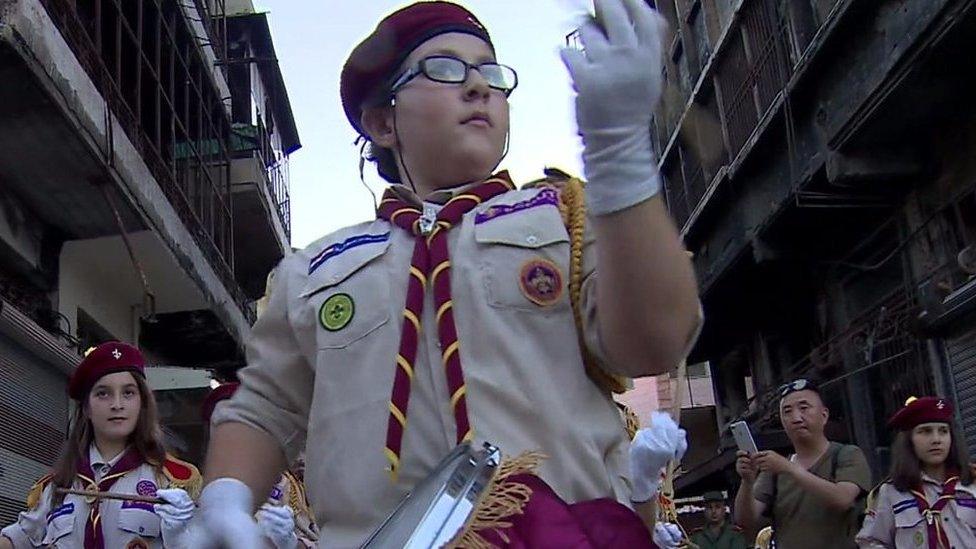Syria war: 'Russian strikes' target Idlib as offensive looms
- Published
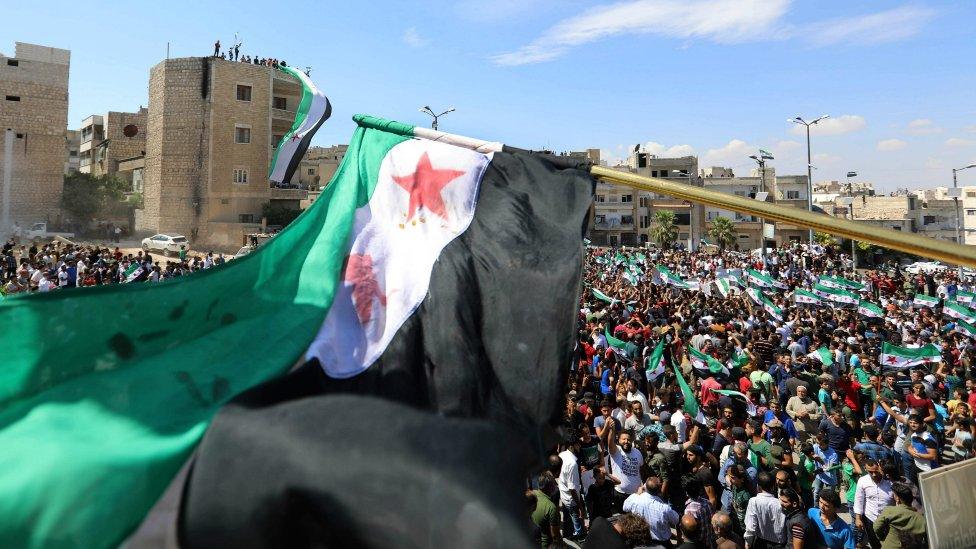
Protesters in the city of Idlib called for international help to stop the expected offensive
Russian war planes have launched fresh strikes on the Syrian province of Idlib, a monitor says, as talks in Tehran failed to stop an impending military offensive there.
The raids targeted rebel-held positions in Idlib's south-west, the Syrian Observatory for Human Rights said.
Syrian forces, backed by Russia and Iran, are poised to attack the last major rebel stronghold in Syria.
Turkey and others have warned of a pending humanitarian disaster.
In the province itself, thousands of people staged street protests after Friday prayers calling for international protection.
In footage circulating on social media, one protester in the town of Al-Dana said they were demanding that the UN "stop the killing of Syrians".
What is the latest military action?
The observatory said Russian jets hit positions of the jihadist alliance Hayat Tahrir al-Sham (HTS) and the Ahrar al-Sham group on Friday.
"The aim was to destroy rebel fortifications," observatory head Rami Abdel Rahman said.
HTS is designated by the UN as a terrorist group and has an estimated 10,000 fighters in Idlib.
The war in Syria could be about to enter its final stage
Earlier in the week, Russian jets were reported to have carried out about 30 strikes on rebel-held areas in western Idlib, the mountains of Latakia province, and the Sahl al-Ghab plain.
Syrian army soldiers and allied militiamen are reportedly massing for what has been described as a phased offensive.
HTS and rival rebel factions backed by neighbouring Turkey have said they will fight back.
What happened in the Tehran summit?
At a trilateral meeting between Russia, Iran and Turkey on Friday, Russian President Vladimir Putin rejected Turkey's calls for a truce in Idlib.
Mr Putin said Russia would continue its fight against "terrorists" in Idlib province.
Turkey - which has long backed some rebel groups - fears an all-out assault will trigger another major refugee crisis on its southern border.
President Recep Tayyip Erdogan told his Russian and Iranian counterparts: "We don't want Idlib to turn into a bloodbath."
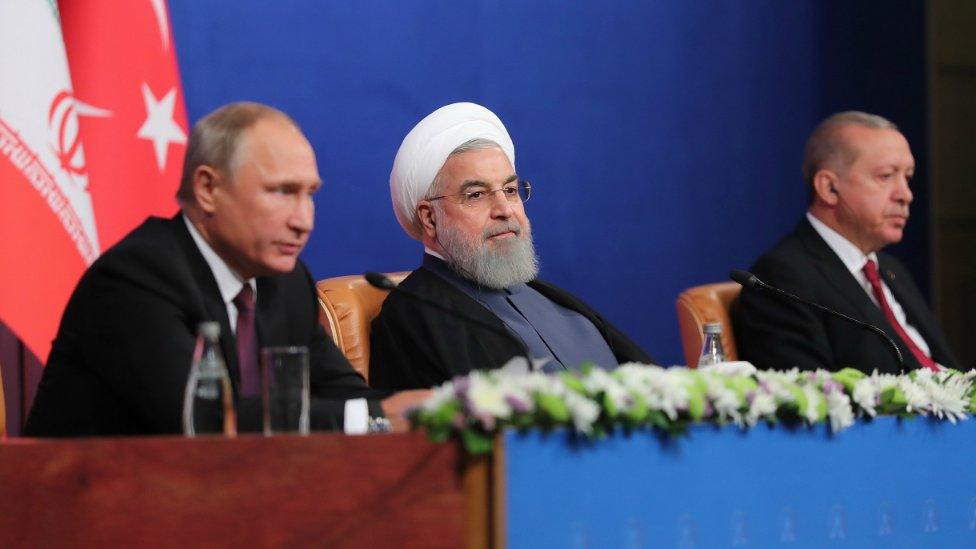
At the summit in Tehran, Russia and Iran said the fight against militants had to continue
"Any attack on Idlib would result in a catastrophe. Any fight against terrorists requires methods based on time and patience."
However, Russia and Iran say jihadist groups in Idlib must be wiped out.
Iran's President Hassan Rouhani argued that "fighting terrorism in Idlib was an unavoidable part of the mission to restore peace and stability to Syria".
Meanwhile, Mr Putin said "the legitimate Syrian government has a right and must eventually take control of its entire national territory".
Why is Idlib important?
The province is the last major stronghold of the rebel and jihadist groups which have been trying to overthrow Mr Assad for the past seven years.
Idlib straddles major highways across Syria and if it is retaken by the government, would leave the rebels with just a few isolated pockets of territory across the country.
The province is not controlled by a single group, but rather by a number of rival factions, including a jihadist alliance linked to al-Qaeda, and a rival National Liberation Front which is backed by Turkey.

Up to 30,000 rebel and jihadist fighters are believed to be in Idlib.
But the vast majority of its residents are civilians. The UN says the region is home to some 2.9 million people, including a million children.
More than half of the civilians have already been displaced at least once from elsewhere in Syria and have nowhere left to go.
What are the concerns?
The UN fears a large-scale offensive in Idlib will lead to a humanitarian disaster.
Without a political solution in Syria, "we will see this war reach new levels of horrors", the UN special envoy on Syria, Staffan de Mistura, said.
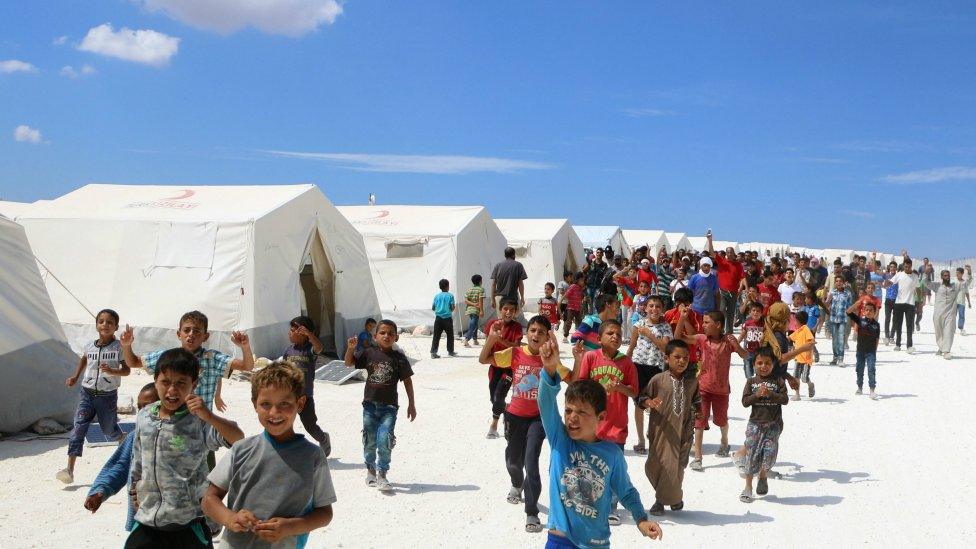
Thousands of people displaced by the civil war are sheltering in camps in Idlib
On Thursday, the new US envoy for Syria, Jim Jeffrey, said the anticipated conflict would be a "reckless escalation", and that "there is lots of evidence that chemical weapons are being prepared."
He did not give details of the evidence he was referring to.
What do we know of chemical weapons use?
The Syrian government has denied ever using chemical weapons.
However, experts from the UN and the Organisation for the Prohibition of Chemical Weapons (OPCW) have said government forces were behind an attack involving the nerve agent Sarin on a rebel-held town in southern Idlib in April 2017 that killed more than 80 people.
The US state department warned on Monday that Washington would respond to any new chemical attacks by the Syrian government or its allies.
- Published7 September 2018
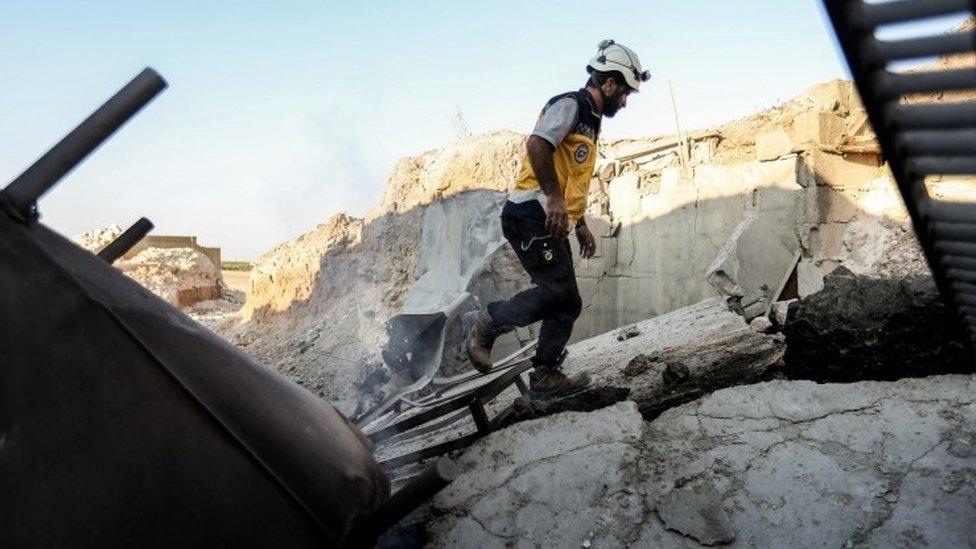
- Published7 September 2018
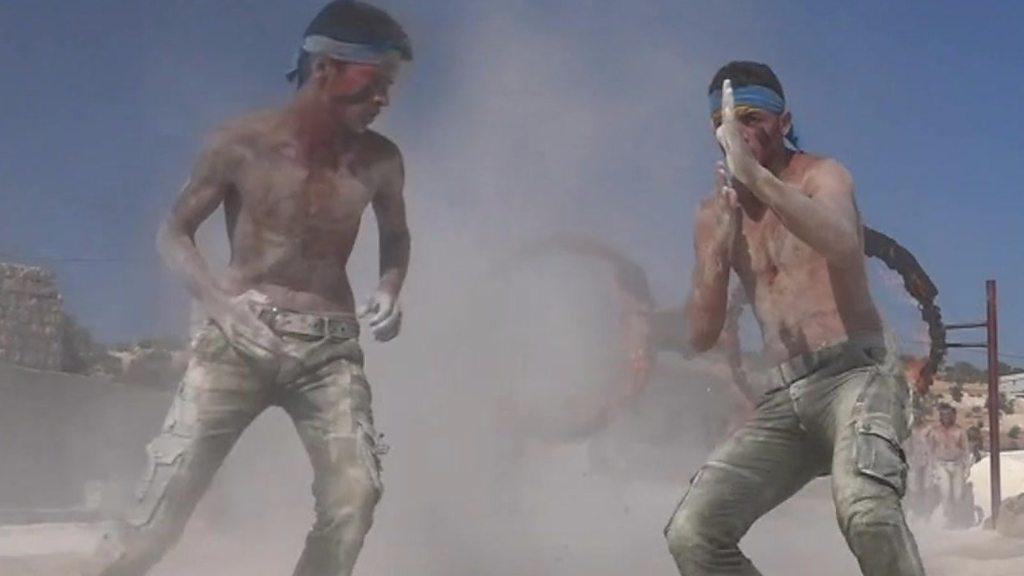
- Published18 February 2020
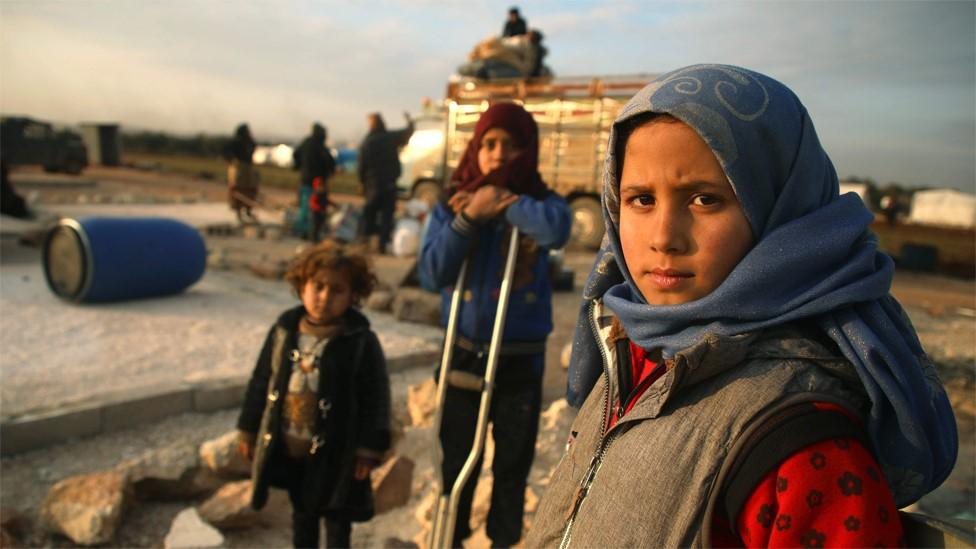
- Published2 May 2023

- Published16 August 2018
